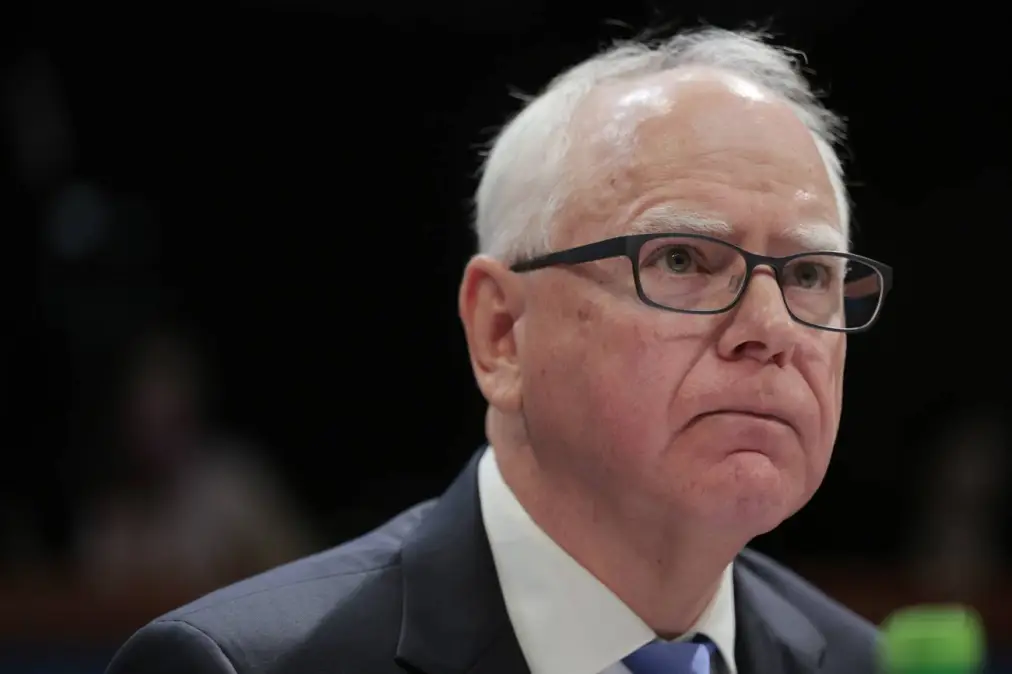Have you ever wondered how prepared a city is to handle a cyberattack? In today’s digital age, where information is the lifeblood of communities, a well-coordinated response is imperative to ensure security and functionality.

This image is property of statescoop.com.
Understanding the Situation
Recently, Minnesota Governor Tim Walz activated the National Guard to respond to a serious cyberattack targeting St. Paul, the state’s capital. This incident highlights the growing threat that cyberattacks pose not just to individual entities but also to entire cities. As this story unfolds, it shows us the critical nature of cybersecurity today.
What Led to the Activation of the National Guard?
The call for the National Guard came after local officials realized the situation was beyond their control. Mayor Melvin Carter reported that St. Paul had detected “suspicious activity” which ultimately turned out to be a complex cyberattack. Their decision to seek external assistance underscores the serious nature of the threat.
The Initial Detection
It all began with a routine check when city officials noticed unusual activity last Friday. At that moment, an investigation was launched, which quickly revealed the attack was not just a technical glitch. Mayor Carter expressed that it was indeed a “deliberate, coordinated digital attack” aimed at compromising the city’s information infrastructure.
Emergency Declaration
In light of the evolving situation, Mayor Carter issued an emergency declaration. This declaration is crucial, as it facilitates faster resource allocation and coordination among various entities, including state and federal law enforcement, and private cybersecurity firms. It’s a necessary step for an effective “whole of government response” to combat the attack.
The Components of the Response
When faced with such incidents, municipalities must act swiftly and decisively. Here’s how the response unfolded in St. Paul.
Collaboration with National Guard Cyber Forces
Governor Walz pointed out the commitment to collaborate closely with local officials during this crisis. National Guard cyber forces possess specialized skills in dealing with cybersecurity threats and are essential to restoring order. This partnership enables both parties to address immediate issues while strategizing for long-term safety.
Responsibilities of the National Guard
- Assessment of Damage: Evaluating the extent of the cyberattack.
- Restoration of Services: Working to bring back the functionality of the affected systems.
- Support for Local Authorities: Collaborating with city and state officials to strengthen defenses.

This image is property of statescoop.com.
The Impact of the Cyberattack
Such an attack can have wide-reaching consequences, disrupting essential services and impacting daily life.
Immediate Fallout
The repercussions of the cyberattack were swift. Key functionalities, including Wi-Fi access in city buildings and library management systems, faced disruptions. Luckily, 911 services remained operational, but it serves as a reminder of how such an attack can create chaos.
The Importance of Communication
During a crisis, effective communication is crucial. Public officials like Mayor Carter kept the citizens informed about the situation and the steps being taken. It helps build trust and assures the public that measures are in place to protect them.
Investigative Actions Taken
Understanding the nature of the attack is essential for developing a comprehensive response strategy.
Focus on Data Security
The city’s chief information officer emphasized the investigation’s focus on maintaining operations while concurrently seeking to discover whether any data had been compromised. This dual approach is vital in the current cyber landscape.
Defensive Measures Implemented
Before the National Guard’s arrival, city officials had already initiated defensive measures to limit the attack’s damage. This included isolating affected systems and ramping up security protocols to protect remaining infrastructure.
The Bigger Picture: Cybersecurity Trends
This incident raises broader questions about how cities across the nation are preparing for cyberattacks.
Increasing Frequency of Cyberattacks
Recent years have shown a troubling trend in the rise of cyberattacks against municipal infrastructures. In fact, there have been over 40 instances where state governors called in the National Guard for cyber responses since 2018.
Notable Instances
- 2018: Colorado Governor John Hickenlooper made the first declaration in response to a cyberattack.
- 2019: Louisiana and Texas governors followed suit, highlighting the growing recognition of the cyber threat.
Evolving Responsibilities of the National Guard
As cyber threats evolve, the National Guard’s role in cybersecurity is becoming increasingly important. They now have over 50 dedicated cyber units tasked with managing these risks, which is a significant shift from their traditional focus.
Preparing for Future Threats
With the realities of cyberattacks becoming unavoidable, proactive measures are necessary to bolster defenses.
Encouraging a Cyber-Aware Culture
Building a culture of cybersecurity awareness is essential, especially within public service sectors. Training and resources must be integrated into city operations to prepare personnel for potential threats.
Legislative Support
Governors and lawmakers should recognize the importance of increased funding and resources directed toward cybersecurity initiatives. Investing in robust technology not only safeguards data but also protects the community’s trust.
Conclusion: Why Community Engagement Matters
As we navigate through these ongoing cybersecurity challenges, community engagement plays a vital role. Citizens should feel informed and involved in the efforts to secure their city’s digital landscape.
Fostering Trust and Resilience
By maintaining open lines of communication and involving community members in resilience planning, cities can build a firewall against not just external threats, but internal fears as well. Trust between officials and citizens is crucial, especially during times of crisis.
A Call to Action
Staying vigilant and proactive in cybersecurity should be a community-wide effort. Each individual can contribute by staying informed, understanding the risks, and supporting local initiatives geared toward creating a more secure digital environment.
Final Thoughts
As Governor Walz and Mayor Carter work tirelessly alongside the National Guard to remedy the recent cyberattack, it serves as a wake-up call for cities everywhere. Cybersecurity is not just a job for tech specialists; it’s a crucial societal concern that requires collective action and awareness. Be sure to stay informed about the stages of recovery and developments in the field of cybersecurity because your awareness can make a real difference in the safety of your community.